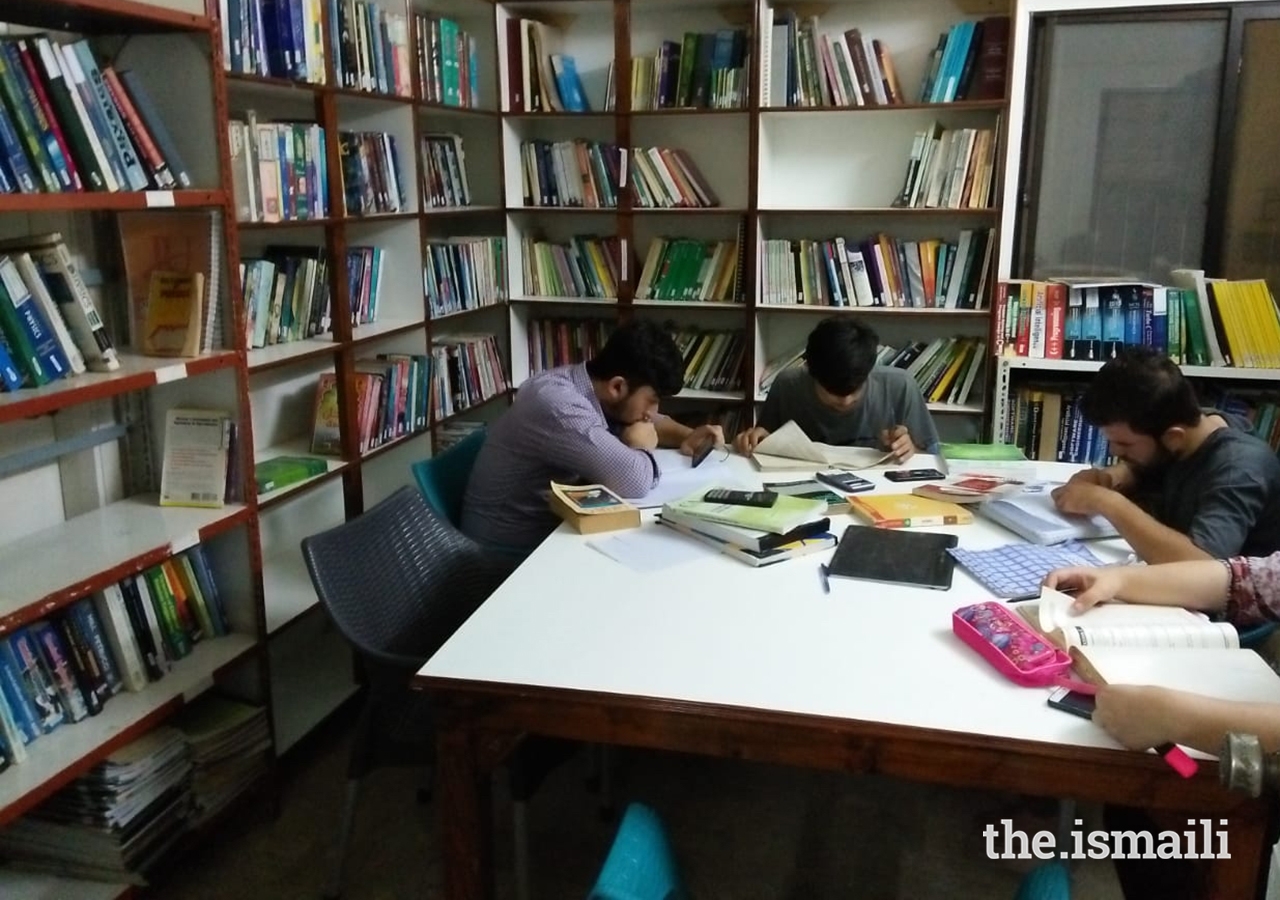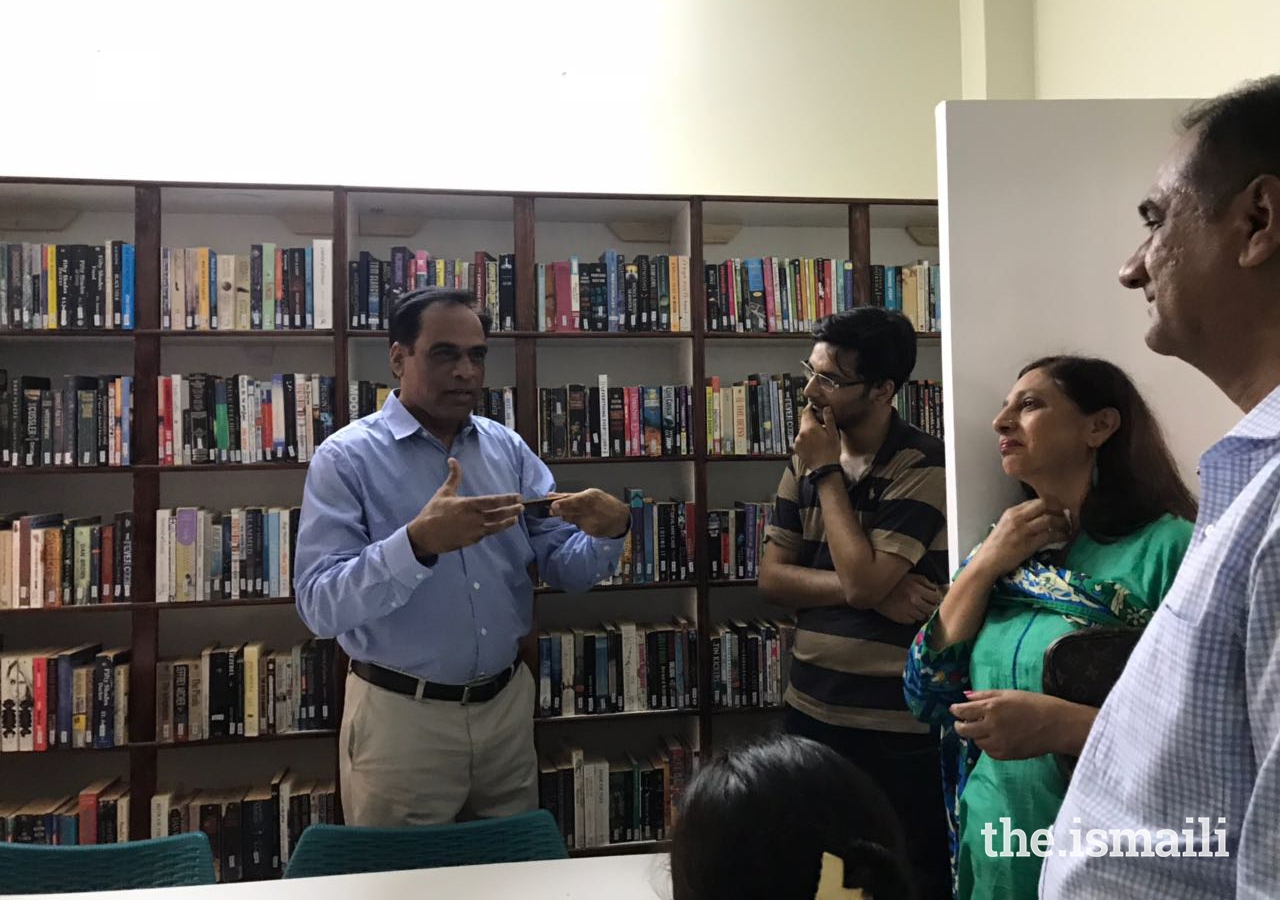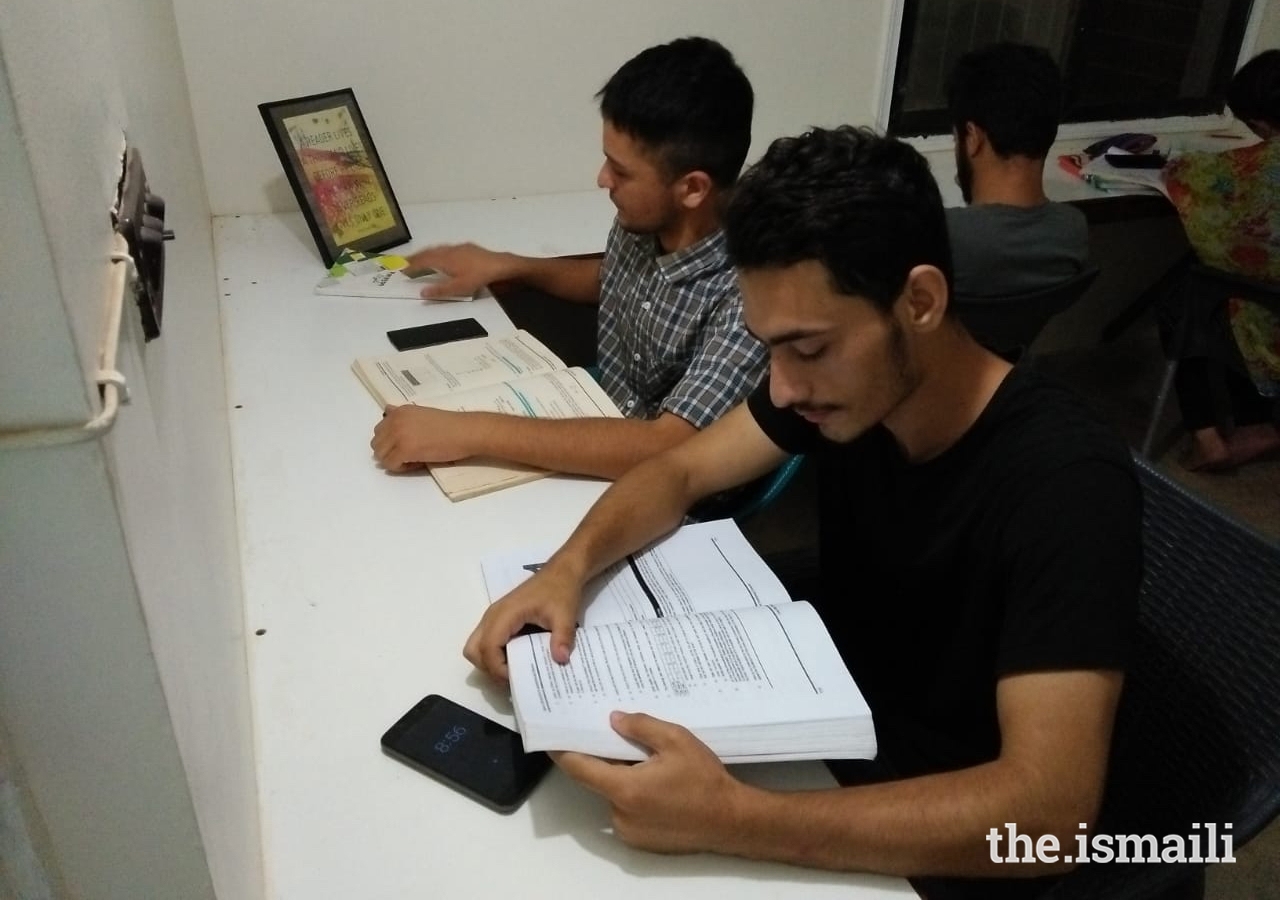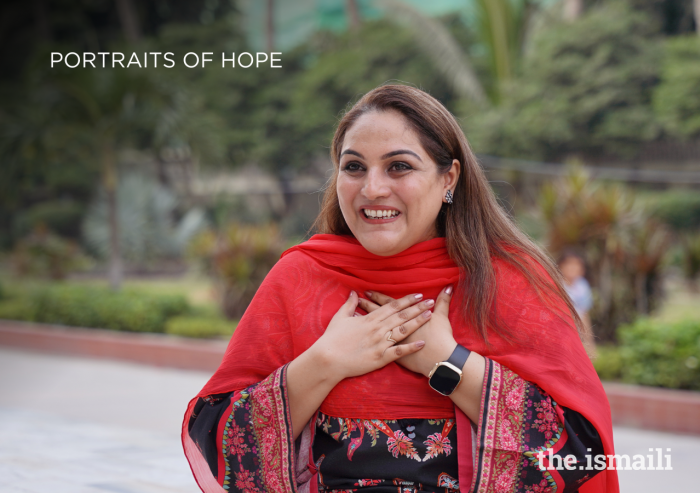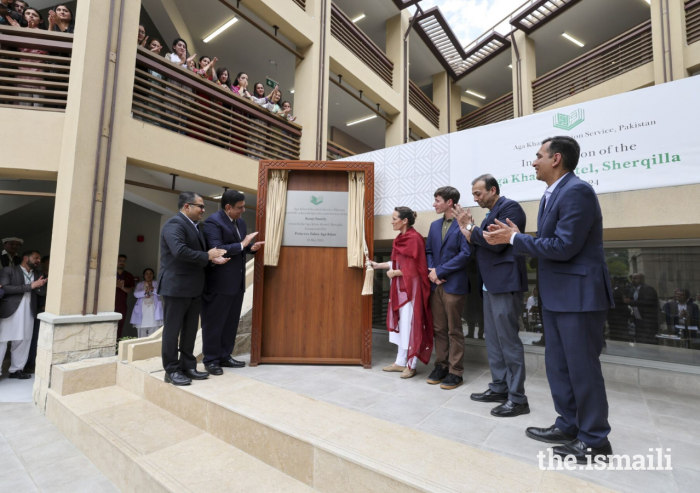Educators have agreed that reading to young children ignites curiosity and imagination, and that young readers are more likely to grow into successful adults who can eventually participate in the knowledge societies of today and tomorrow. It is also important to continue to hone one’s literacy skills later in life, and outside of formal educational settings. This helps to foster personal autonomy, and develop creative and critical thinking skills. Attending libraries, reading for pleasure, and participating in reading clubs are all ways to refine one’s literary abilities throughout life.
“Reading provides an opportunity to reflect and plays an important role in character building,” said Shayan Alwani, Chairman of the Local Education Board in Gulshan-e-Noor. “Reading at an early age makes a child ambitious about the future and ignites the hope for better opportunities.”
For many years, there had been no proper library in Gulshan-e-Noor. The new library, developed after consultation with the Jamat, holds 3,000 books on general knowledge, science, religious and educational literature, and other topics, while the reading room can accommodate 30 students for educational programming.
Since opening, the library has hosted programmes such as French classes, mathematics clubs, robotics classes, and a summer camp for the local Jamat.
Adnan Johar and Faizan Ali, both from Gulshan-e-Noor, said the library and its resources will assist in improving their knowledge in their own fields of interest, other academic subjects, and religious education. Adnan also appreciates the peaceful environment the library provides for readers.
In addition to the formation of educated adults, universal literacy helps to develop more rounded individuals, capable of living richer lives, who are better equipped to provide for themselves and their families, and eventually make a contribution to their communities and societies.
“The world has changed significantly and literacy is necessary for progress in life,” said President of the Gulshan Council Saeed Wazir Ali. “It is a reality of the world that without being literate, it will be difficult to achieve success in your life.” He quoted Nelson Mandela, by saying “Literacy is a bridge from misery to hope.”
The new facility at Gulshan-e-Noor is just one example of Libraries and Reading Rooms in Jamatkhanas across the world, encouraging members of the Jamat — young and old alike — to spend more time reading and learning, thus continuing a tradition that has lasted for over 1,400 years.

